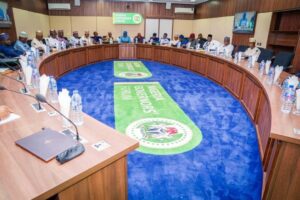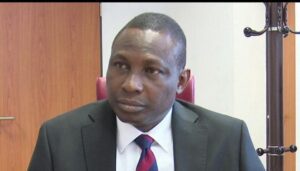
Relocation of some federal government agencies from Abuja to Lagos, blessing or a curse?
The recent pronouncement of the relocation of the Central Bank of Nigeria (CBN), Federal Aviation Authority of Nigeria (FAAN) and some other parastatals from Federal Capital Territory (FCT) to Lagos may have elicited some reactions, ideal in a society, but the question is of what essence is that decision? While some people view it as an administrative decision for convenience, others see it as political.
Whatever be the case, the agitating parties should see the Federal Government’s decision on the relocation as that of public interest. Since this relocation announcement, a lot of groups and individuals have spoken either for or against the planned relocation.
For instance, the Arewa Consultative Forum(ACF) has seen the decision to move the CBN, FAAN and few other parastatals from Abuja to Lagos as an attempt by the federal government to disrupt the current progress of the North.
Speaking through its National Publicity Secretary, Prof Tukur Muhammad Baba, the group decried such a decision, describing it as a calculated attempt by the President Ahmed Bola Tinubu-led administration to disrupt the current progress of Northern Nigeria for reasons best known to it. He was categorical that such policy is not in the best interest of the North and the country at large.
Bashir Ahmad, former Aide to President Muhammadu Buhari, however viewed the relocation of the Government agencies as normal. According to him, it does not matter where the agencies are sited, provided it will bring positive change to the country.
“It does not matter where the Federal Capital Territory is, provided it will bring positive change to the nation,” he said.
Ahmad reminded critics of the relocation policy that the Headquarters of the Nigerian Maritime Administration and Safety Agency (NIMASA), Nigerian Ports Authority (NPA) and National Inland Waterways Authority(NIWA) are not currently located in Abuja.
He said it is natural, productive and convenient that regulators stay closer to what they are regulating and this relocation plan of moving the CBN, FAAN and some other parastatals are to achieve that purpose.
In the same vein, Senior Adviser (SA) to President Tinubu on Information and Strategy, Mr Bayo Onanuga said there is nothing wrong with relocating or siting Government Agencies or parastatals in any part of the country.
He retorted that it does not in any way indicate that there are plans to relocate the Federal Capital Territory, (FCT) to Lagos, as being rumoured by some unprogressive elements in the country.
He warned those peddling the rumour, whom he accused of seeking attention for themselves to desist forthwith.
According to him, people peddling such damaging rumour could better be described as “dishonest,ethnic and regional champions,” who are only seeking attention for themselves. This, Onanuga said, is capable of pitching the North against the South and that can be disastrous if not properly handled.
“Those peddling this rumour are dishonest, ethnic and regional champions trying to draw attention to themselves. Abuja has come to stay, it is backed by law,” Onanuga said.
Whether the above assertions are true or not, the fact is that there are more important things to be done by this current federal government, instead of delving into unnecessary controversies and at times frivolities.
For instance, the inflation rate in the country is still soaring per day. Power supply that will naturally engender development is still in its sorry state, poor road networks across the country are still staring everybody in the face, insecurity is still a big challenge,among several other problems. So why leave the disease to tackle the symptoms? The Sen. Ahmed Bola Tinubu-led Government should for once be serious, it should strive to get its priorities right, instead of beating about the bush.
Of what urgency or necessity is it to relocate an existing agency or parastatal from one point to another? What of its cost implications, inconvenience of the staff and loss of manhours?
Is this relocation policy really worthwhile? These are questions begging for answers, which the current federal government must provide answers to.
It has often been said by safety practitioners that if you cannot work safely, you dare not work at all. We think this philosophy should guide the President Ahmed Bola Tinubu-led Government as it is presently constituted.
The reason is not far-fetched, because what is done well is called ‘fine’. The refineries should commence proper production that will reflect on the lives of the citizenry. By this we mean that prices of petroleum products should fall, cost of living should be tolerable to an average Nigerian.
It is only when these basic amenities are provided that Nigeria and Nigerians can give kudos to the leadership of the country. People are tired of endless promises that often end up in families going to bed hungry. So whatever should be done to address these challenges should be done and quickly too.
In as much as we are not trying to be pessimistic, what we are saying is that the nation should be put on a fast pedestal, for onward economic, socio-political development. The reason is that peers like India, Singapore, Indonesia and even Ghana and the rest have left Nigeria far behind, courtesy of poor leadership. We must therefore buckle our seat belts and be ready to accelerate, overtake, and recover.
Anything short of that is unacceptable to Nigerians. Relocation of agencies from one state to another cannot be said to be a priority now, no matter how beautiful the concept may seem. So let the first thing be done, and the nation will be better for it. When to start is definitely now!



